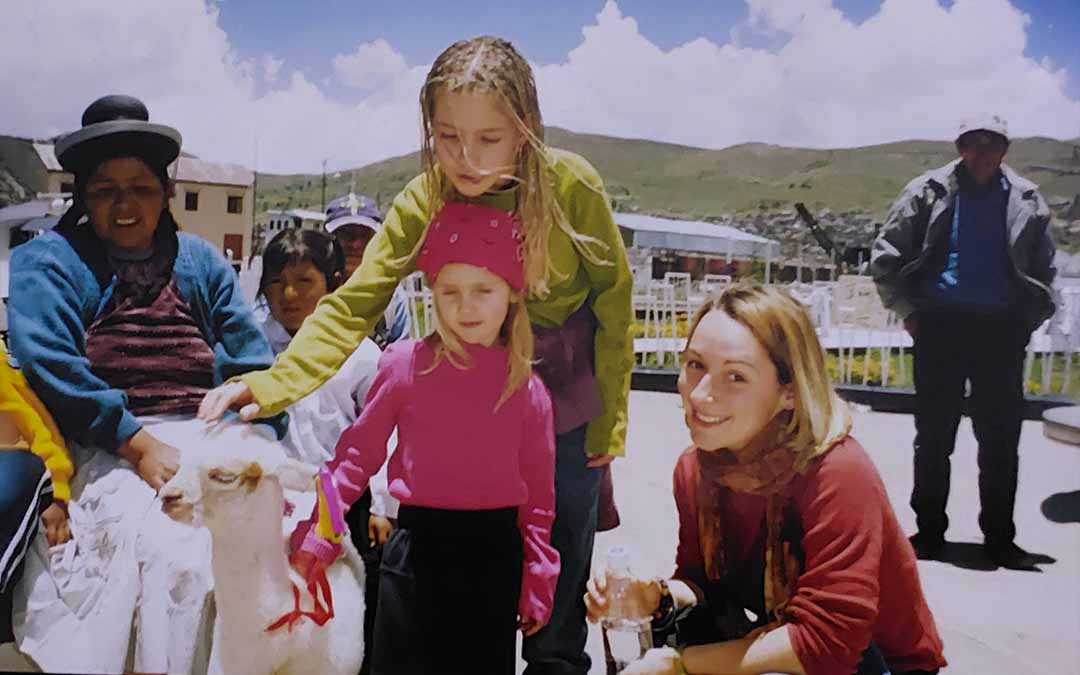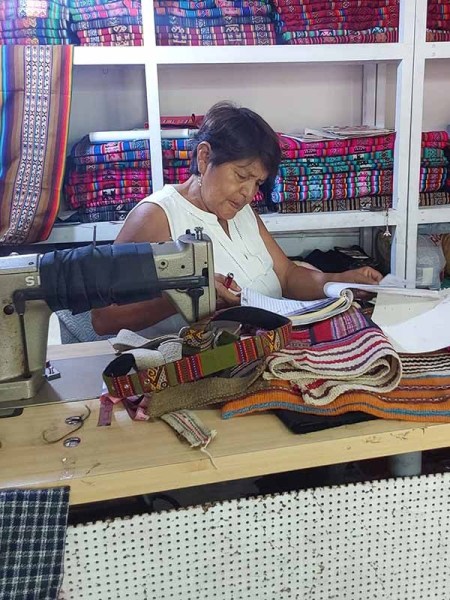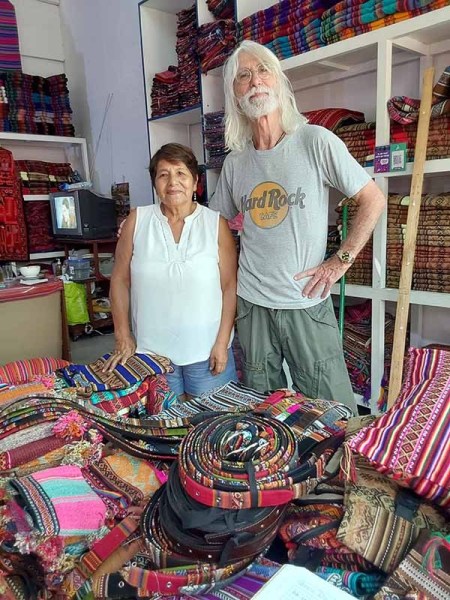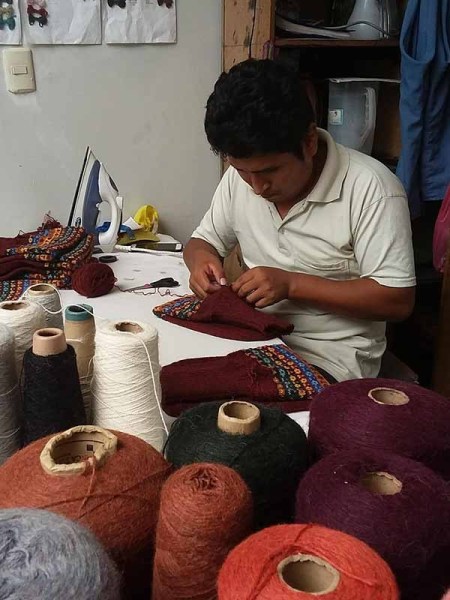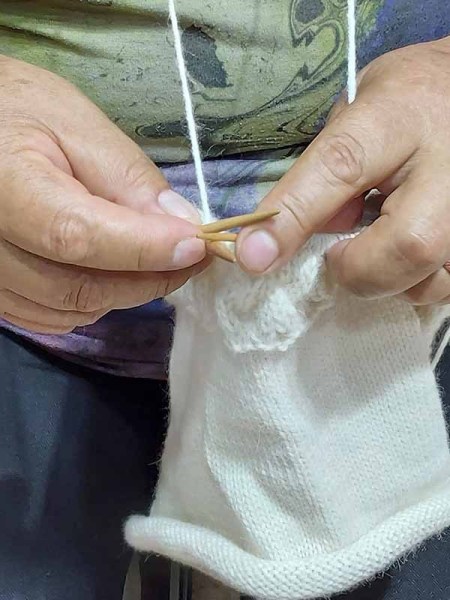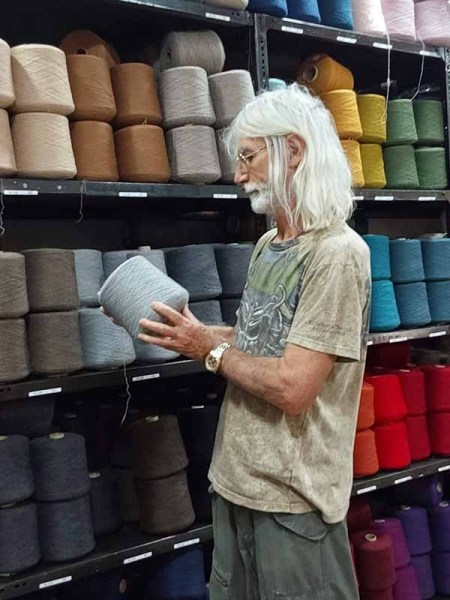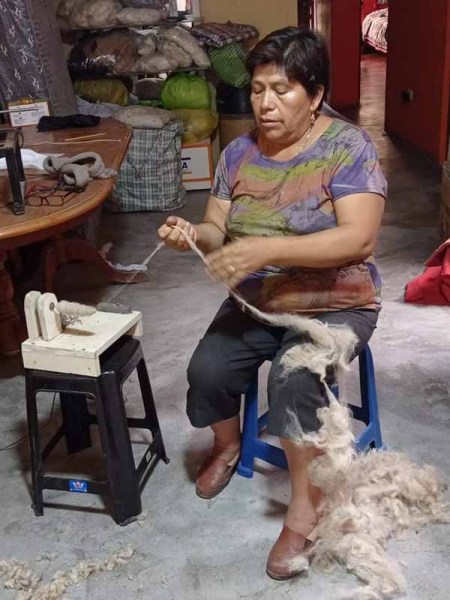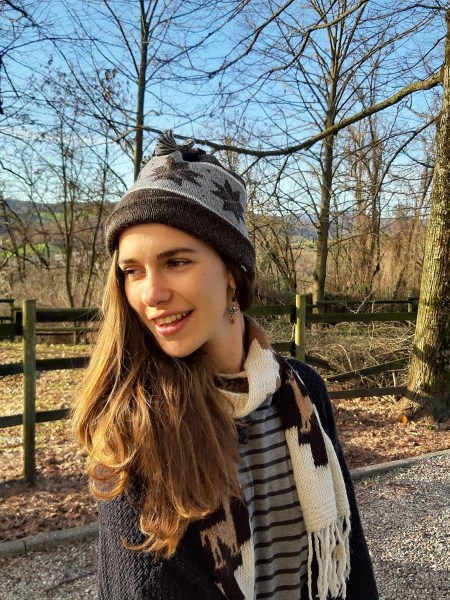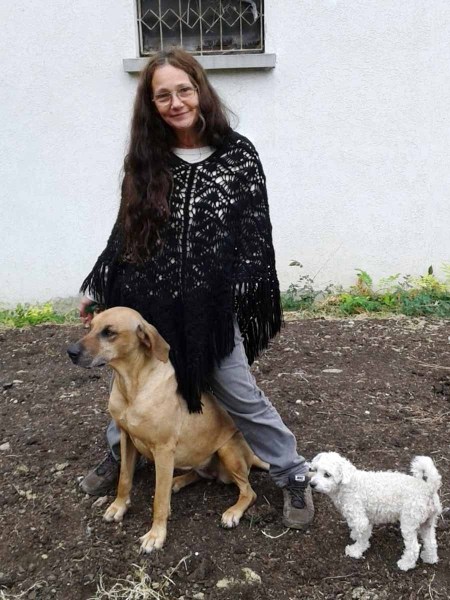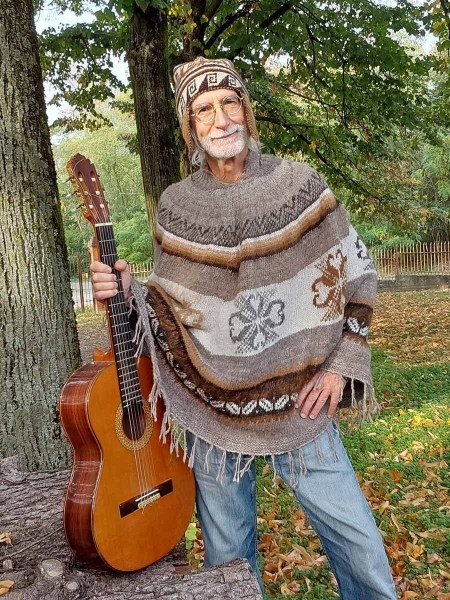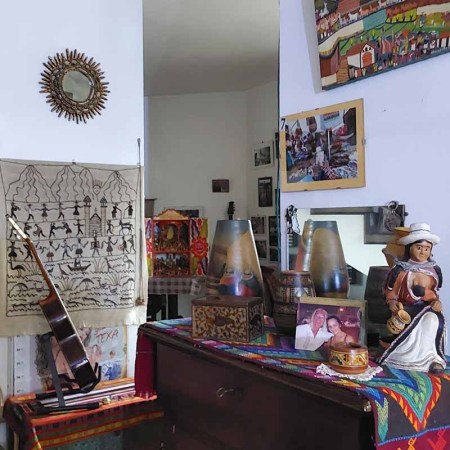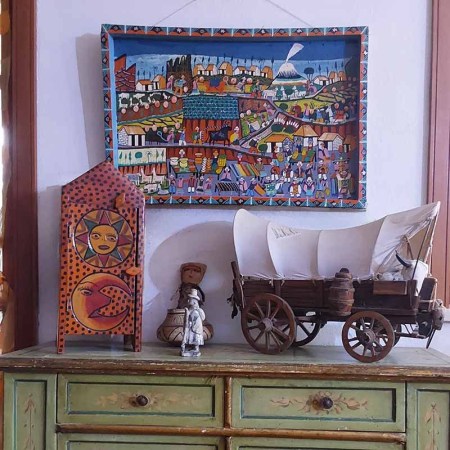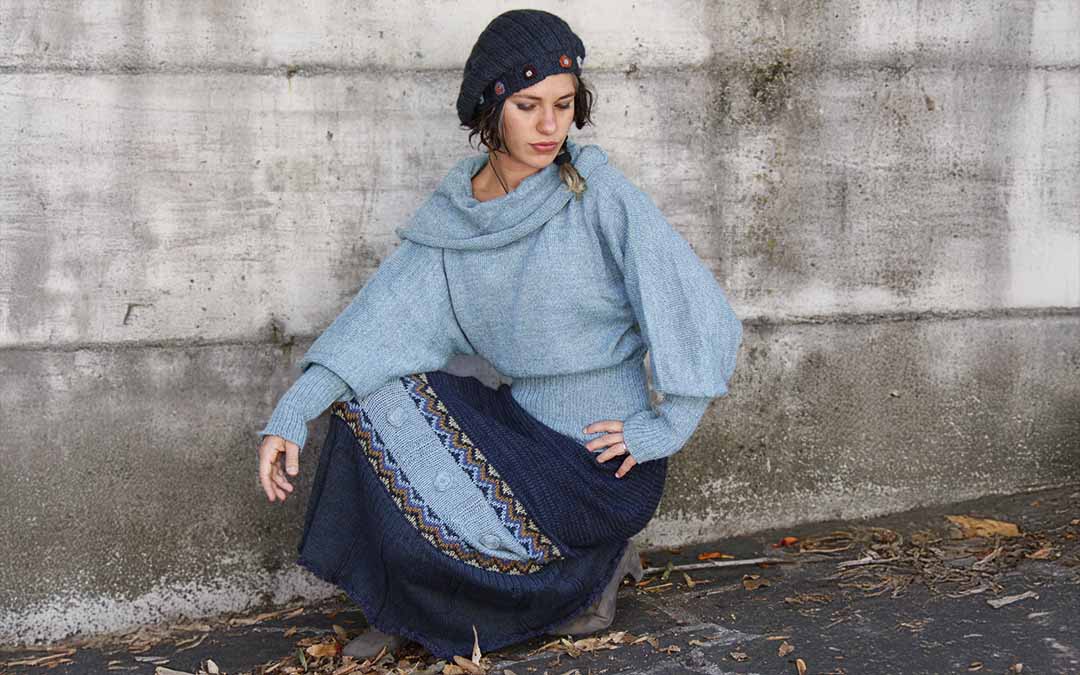Origins of the term slow fashion, today also called sustainable fashion
The term slow fashion (sustainable fashion) emerged around 2007, coined by the British designer and researcher Kate Fletcher, a professor at the Centre for Sustainable Fashion in London.
She proposed it as a direct response to fast fashion, the industrial system that produces and sells garments quickly and at low cost, sacrificing quality, the environment and human labour.
Kate Fletcher drew inspiration from the slow food movement founded by Carlo Petrini in Italy in the 1980s — a movement that defended food that was good, clean and fair, in contrast to fast food.
In the same way, slow fashion meant a kind of sustainable fashion that was good, clean and fair:
- good for those who wear it and those who make it,
- clean for the environment,
- fair for workers.
But it was not only about producing less or using sustainable materials.
Fletcher spoke of a cultural shift, a different way of thinking about getting dressed:
buy less, choose better, care for your garments, love them and repair them.
In other words, slow down to restore value — the essence of true sustainable fashion.
What sustainable fashion and ethical clothing mean to me and to LaMamita
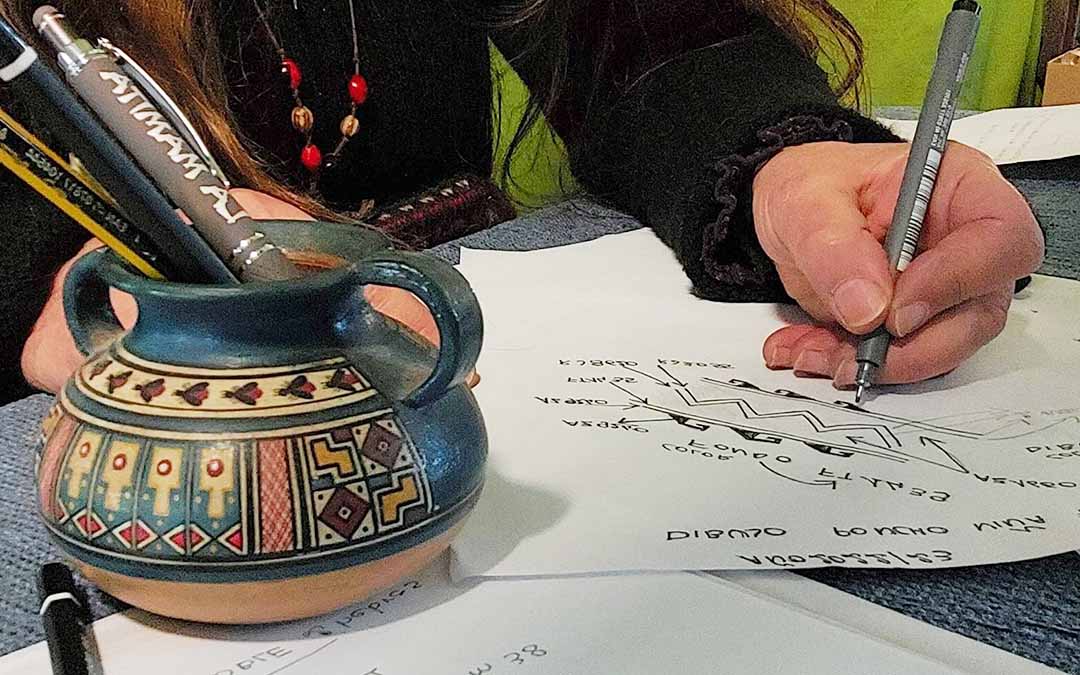
My name is Cinzia, and today I want to explain what sustainable fashion and ethical clothing mean to me and to the LaMamita® brand, born in the 1980s when these words did not even exist.
For us, sustainable fashion is not just a trend; it is a way of life.
We have never loved haste, not even when the world around us was speeding up.
Perhaps that is why today, after so many years, we and our brand LaMamita® recognise ourselves in this concept — slow fashion — even though we never chased it.
Our motto has always been:
- choose calmly,
- work conscientiously,
- build good relationships with our artisans,
- choose natural materials,
- create long-lasting garments.
In short: do things well, as they should be done, with love and respect for everyone — adults, children, workers, customers, ourselves and the earth.
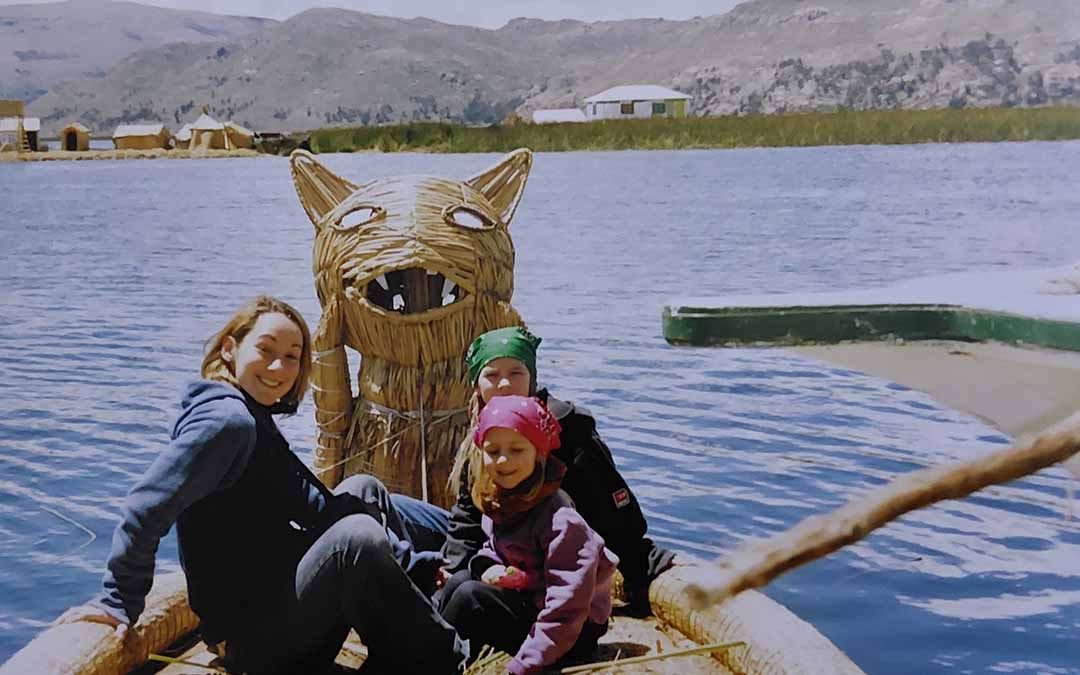
The value of simple gestures
Even today, after more than forty years of work, whenever I take a garment in my hands before sending it out, I realise it is never a mechanical gesture.
I look at it, check it, tidy a loose thread, straighten a seam, fold it with care.
To do this, I open the plastic bags in which a jumper, a skirt or a poncho is wrapped; I open them gently, check there are no flaws and, if possible, I reuse the original bags.
Why take a new one? The answer is a question: why so much plastic waste?
If the bag is not torn, what sense does it make to pack it in a newer one?
My customers bought the jumper, not the bag!
The jumper must be perfect; the bag will be thrown away — the jumper will last for years.
This too is part of our sustainable fashion philosophy: respect for people, materials and the planet.
The artisans and the dignity of hands
We know the people we work with.
We return to the same artisans year after year: small family workshops where knowledge is handed down, where a father teaches a son how to tension the thread properly, where patience is still a virtue.That is where our garments are born, among the gentle hum of sewing machines and the laughter shared around a work table.
When they ask us for a raise, they explain why: rice costs more, as do milk, sugar, flour, meat…
What can you do? All over the world, the cost of living is rising.
They know well that if we sell, we then buy: so we talk, negotiate and reach a fair agreement.
Without certifications, but with conscience
Many speak of certifications, sustainability and green strategies.
Quality certificates? “Green” labels?
We do not have them, and we do not want them: they are costly and must be renewed frequently.
What is slow fashion about any of that? Nothing.
They are strategies for following a passing trend.
We do not do strategies.
We are sustainable fashion — pure and simple.
We buy our yarns from the best producers, we touch the fibres with our hands, look at the colours, feel the texture and choose the best quality.
We do not need a document to know it.
We know it from experience, and our customers know it too: they have always placed their trust in us, built over many years.
It is a simple chain: from producer to consumer — the true spirit of ethical clothing.
The fair price as an ethical choice
Sustainable fashion, also called slow fashion, does not only mean offering a quality product or recycling plastic bags to pollute less.
For us, sustainable fashion also means giving the final product a fair price.
And how do we achieve this?
By containing costs where it is possible and right to do so.
Costly photo shoots? We do not do them.
We take the photographs ourselves.
They may not be perfect, but they are authentic.
🌿 Our photos tell the truth of our work: people, nature, animals and real garments. No set, just authenticity.
We do not use models: we photograph relatives, children, grandchildren, friends or, when needed, simple mannequins.
We do not need professional studios.
We have a garden, a white wall and a home full of artisanal objects gathered over years of travel.
And that is fine, without great pretensions.
Our photos do not need to impress: they need to tell a story — a story of sustainable fashion and ethical clothing.
Sustainable fashion: work made of words, hands and presence
LaMamita has no marketing consultants, does no paid advertising, has no external translators and no budget for agencies.
An e-commerce site in five languages with their respective blogs? We manage it ourselves.
Who translates? We do.
Who writes the informational articles? We do.
Who answers your emails and WhatsApp messages? Always us, in person.
Because who better than us can answer your doubts and your questions?
This work is our life.
Sustainable fashion: timeless style without an expiry date
We almost never run sales.
Our garments have no expiry date; they do not belong to a passing trend.
We make them again every year, updating the colours and creating only a few new designs, always respecting our sustainable and ethical style.
When a design is no longer produced, we put it on sale: not because it is outdated, but because we will not make it any more.
The beauty of our garments — jumpers, dresses, skirts, ponchos, hats, scarves or gloves — is a timeless beauty.
Our right way of living
All this, for us, is sustainable fashion:
the real kind, dictated by a way of thinking and a way of living that we have made our own.
Today, sustainable fashion has become a global movement, but also an overused label.
Many companies use it for marketing, emptying it of its original meaning.
For us, instead, it has always been the right way to work — and to live.
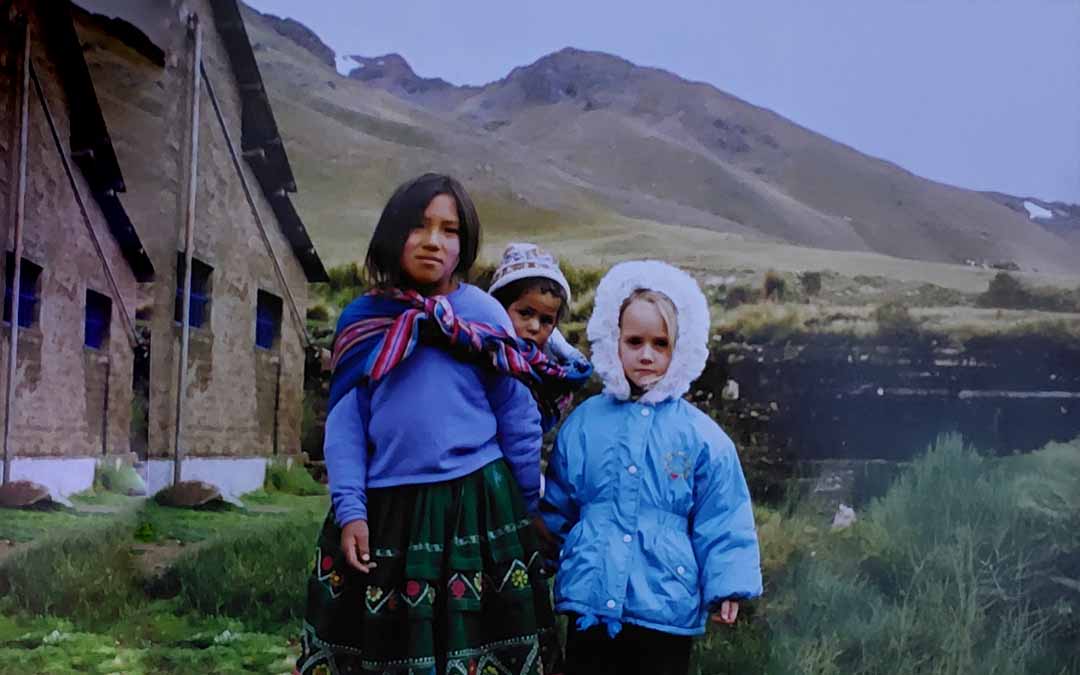
🌿 Sustainable fashion is born from encounter, respect and life.
Sustainable fashion and ethical clothing are not a strategy.
They are a choice of love, repeated every day ❤️
If you would like to explore the meaning of sustainable fashion and ethical clothing, read this article too 👉 Sustainable fashion and alpaca wool
![]() Sprichst du Deutsch?
Sprichst du Deutsch?
Besuchen Sie unseren deutschen Blog über nachhaltige Alpaka-Mode und lesen Sie den Artikel über 👉 Peruanische Mütze.
FOLLOW US ON SOCIAL MEDIA

